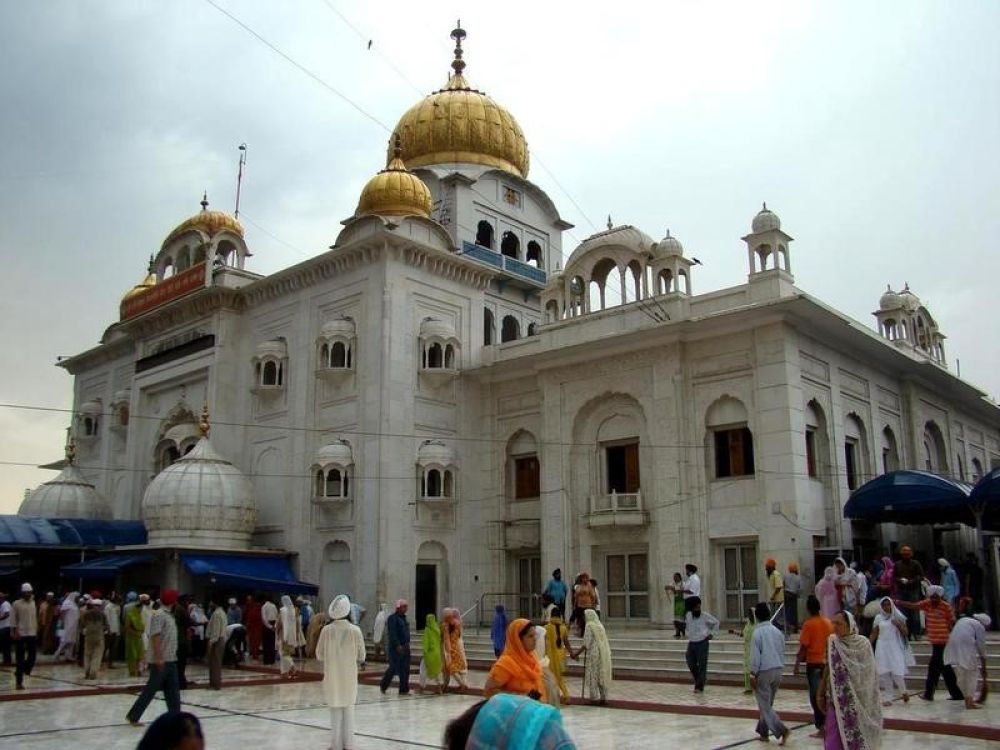

Gurudwara Rakab Ganj Sahib is a place of great historical and religious significance in the heart of Delhi, India. This sacred site commemorates the place where the mortal remains of the ninth Sikh Guru, Guru Tegh Bahadur, were cremated after he was executed by the Mughal Emperor Aurangzeb for refusing to convert to Islam. This event took place in November 1675, and ever since, the site has been revered by Sikhs around the world.
The Gurudwara was built at the site where Lakhi Shah Vanjara, a devout Sikh, along with his son Bhai Naghaiya, burned his own house to cremate the body of Guru Tegh Bahadur clandestinely. The construction of Rakab Ganj Gurudwara was completed in 1783 by military leader Baghel Singh Dhaliwal, who, along with his army, established six Gurudwaras related to Sikh Gurus in Delhi, during their short stay in the city.
Since its establishment, Gurudwara Rakab Ganj Sahib has become a place of pilgrimage for Sikhs around the world. The tourism in this area has grown over the years due to its historical significance and its location in the capital city of India. Tourists flock to the site not only for its spiritual ambience but also to marvel at its architectural beauty and to immerse themselves in the peaceful and welcoming atmosphere.
Sustainable Tourism: Nowadays, there is a focus on sustainable and responsible tourism practices in and around Gurudwara Rakab Ganj Sahib. The management ensures that the activities are eco-friendly and respectful of the cultural ethos of the site.
Virtual Reality Tours: With technology playing a critical role in the dissemination of information, many tourists now have the option to explore this historical place virtually through round-the-clock available VR tours and online platforms.
Cultural Integration: Visitors often partake in the 'Langar', a community kitchen where food is served to all visitors regardless of religion or background. This practice offers a firsthand experience of Sikh traditions and beliefs and has become a pivotal reason for many to visit Gurudwara Rakab Ganj Sahib.
Educational and Spiritual Tours: The Gurudwara organizes educational tours that provide insights into Sikh history and the life of Guru Tegh Bahadur, making it an enriching experience for students and those interested in religious studies.
Gurudwara Rakab Ganj Sahib remains open to visitors seven days a week. The best time to visit is early morning or late evening during prayer times when one can experience the devotional kirtan sessions. As with any place of worship, visitors are expected to follow a code of conduct – removing shoes, washing hands, and covering their head before entering the main prayer hall.
The profound history and continued cultural significance of Gurudwara Rakab Ganj Sahib make it a must-visit destination for tourists in Delhi. Its serene environment and spiritual aura offer a unique perspective into the Sikh religion and the rich tapestry of Indian religious history.